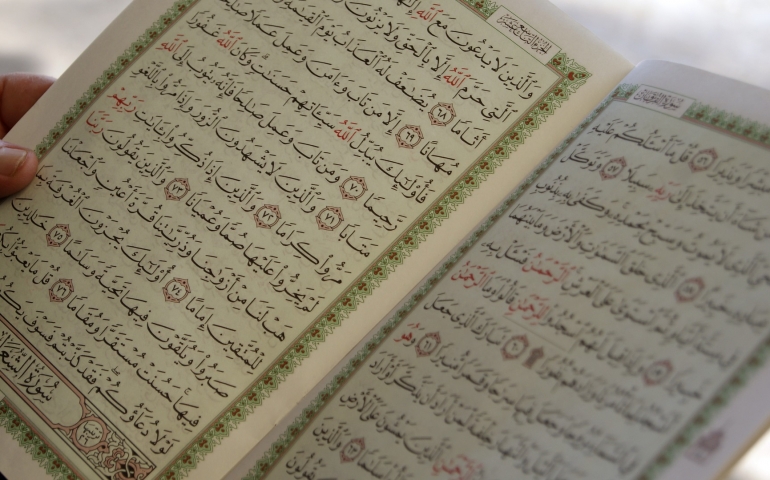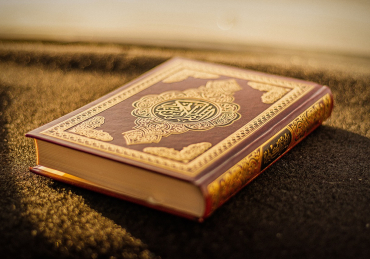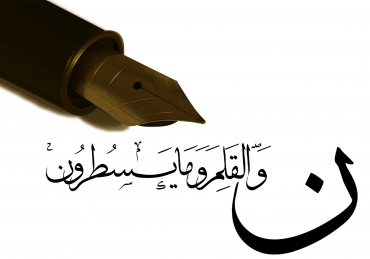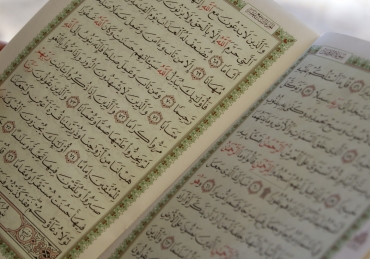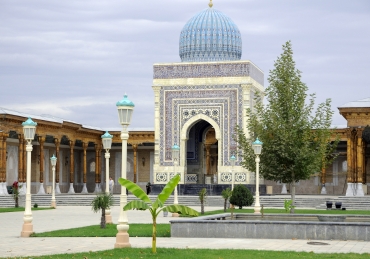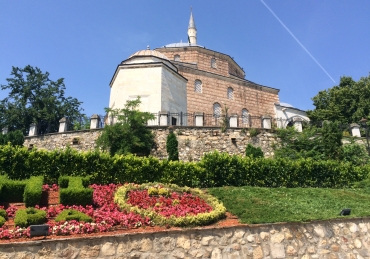Completing the Qurʾān on 27th night of Ramaḍān
Question
Is there any basis for completing the Qurʾān on the 27th night of Ramaḍān as is prevalent?
بسم الله الرحمن الرحيم
Answer
We have not come across any specific basis for completing the Qurʾān on the 27th night of Ramaḍān apart from the fact that some jurists regard it as desirable due to the increased possibility of the night of power (Laylat al-Qadr) falling on the 27th night. This has been narrated by ʿAllāmah Sarakhsī (d. ca. 490/1097) and other Ḥanafī jurists from the scholars of Bukhara.[1] Scholars who have concurred with this include: Ḥāfiẓ Badr al-Dīn al-ʿAynī (d. 855/1451)[2], Mullā Khusrū (d. 885/1480-81)[3] and some jurists from the Indian sub-continent.[4] Ḥāfiẓ Dhahabī (d. 748/1348) mentions in the profile of one of the narrators of Sunan Abū Dāwūd, Aḥmad ibn Muḥammad al-Mutawakkilī that he passed away in 521/1127 after completing the Qurʾān on the 27th night of Ramaḍān.[5] Similarly, Imam Fākihī (d. 272-9/885-92) writes that he heard some jurists from the blessed city of Makkah narrate that the completion of Qurʾān would take place in Makkah on the 27th night of Ramaḍān after the 3rd Rakʿah of Tarāwīḥ Ṣalāh.[6]
However, many of our Ḥanafī jurists have narrated that according to Imam Abū Ḥanīfah (d. 150/767), the Imam should recite ten verses in each of the Rakʿah of Tarāwīḥ Ṣalāh because the verses of the Qurʾān are approximately 6000 and the number of Rakʿah of Tarāwīḥ will be 600 or 580 Rakʿah, according to the number of days of Ramaḍān. ʿAllāmah Ibn al-Humām (d. 861/1457) suggests that this is the view of the majority of the Ḥanafī scholars, not what has been mentioned above from the scholars of Bukhara.[7] ʿAllāmah Sarakhsī (d. ca. 490/1097) also prefers this view.[8] Imam Fakhr al-Dīn Zaylaʿī (d. 743/1343) suggests this is the ṣaḥīḥ (sound) opinion[9], and this view is shared by ʿAllāmah Ibn Nujaym (d. 969/1562)[10] and ʿAllāmah ʿAbd al-Raḥmān Shaykhīzādah (d. 1078/1667-8).[11] ʿAllāmah Ibn ʿĀbidīn (d. 1252/1836) is also inclined towards this.[12] Accordingly, this implies that the completion of the Qurʾān should occur on the 29th night of Ramaḍān.
In light of the prevalent practice, it is strongly recommended that the Qurʾān is completed on the 29th night for the following reasons:
- After completing the Qurʾān on the 27th night of Ramaḍān, many people do not perform Tarāwīḥ Ṣalāh thereafter, whilst for some people the spirit of Ramaḍān diminishes.
- The prevalent practice is to reduce the recitation of the Qurʾān in the days preceding the completion of the Qurʾān especially on the 26th and 27th nights of Ramaḍān, whereas the Prophet of Allah ﷺ would increase his worship in the final ten days of Ramaḍān.[13]
- The prevalent practice is to recite significantly less Qurʾān in Tarāwīḥ Ṣalāh after the 27th Ramaḍān.
- Many people believe that the night of power falls on the 27th night of Ramaḍān. Whilst this is a possibility, this is not definitive. The Prophet ﷺ said, “Search for the night of power in the final ten days of Ramaḍān.”[14]
- Linked to the above, many people believe that completing the Qurʾān on 27 Ramaḍān is necessary as it holds some special significance or virtue or that it is a Sunnah that cannot be abandoned.
The Mālikī scholar and expert on innovations ʿAllāmah Ibn al-Ḥāj (d. 737/1336) writes, “It is appropriate to abstain from what some people have innovated in relation to the completion [of the Qurʾān] in that they perform Qiyām in the nights of Ramaḍān with the recitation of two or more Juzʾ (chapter). When it is the night of completion, in which more should be recited due to its virtue, some of them recite less than half Juzʾ (chapter), from Sūrah al-Ḍuḥā until the end. The Salaf (predecessors) would stand the entire night. These people come and do the opposite.” He further writes, “This Sunnah [of increasing worship in the final ten days] has been mostly abandoned in this era. You will find some of them performing Qiyām in the beginning of the month and then abandoning it in the final ten days because they have completed the Qurʾān. This is an innovation and a clash with the practice of the Prophet ﷺ. Even those who continue with Qiyām thereafter will only do so with a small portion [of the Qurʾān].”[15]
In conclusion, we have not come across any basis or specific virtue for completing the Qurʾān on the 27th night of Ramaḍān. In light of the negative effects highlighted above and the position of Imam Abū Ḥanīfah (d. 150/767), it is strongly recommended to complete the Qurʾān on 29th Ramaḍān and avoid reducing the amount recited in the final ten days of the month. However, for those who complete the Qurʾān on the 27th night or before this, they are advised to continue to attend and perform Tarāwīḥ Ṣalāh and not reduce the amount of Qurʾān that is recited in the days preceding the completion and thereafter.
Allah knows best
Yusuf Shabbir, Blackburn, UK
5 Ramaḍān 1437 / 10 June 2016
Approved by: Mufti Shabbir Ahmad Sahib
Footnotes
[1] Al-Mabsūṭ (2: 146); al-Muḥīṭ al-Burhānī (1: 460).
[2] Minḥat al-Sulūk (p. 150).
[3] Durar al-Ḥukkām (1: 120).
[4] Maḥmūd al-Fatāwā (5: 192). In Fatāwā Rahīmiyyah (6: 266), both options of completion on 27th and 29th are mentioned.
[5] Al-ʿIbar Fī Khabr Man Gabar (2: 415).
[6] Akhbār Makkah (2: 149).
[7] Fatḥ al-Qadīr (1: 469).
[8] Al-Mabsūṭ (2: 146).
[9] Tabyīn al-Ḥaqāʾiq (1: 179).
[10] Al-Baḥr al-Rāʾiq (2: 74).
[11] Majmaʿ al-Anhur (1: 136)
[12] Radd al-Muḥtār (2: 46).
[13] Ṣaḥīḥ al-Bukhārī (2024, 2025).
[14] Ṣaḥīḥ al-Bukhārī (2020).
[15] Al-Madkhal (2: 294).

